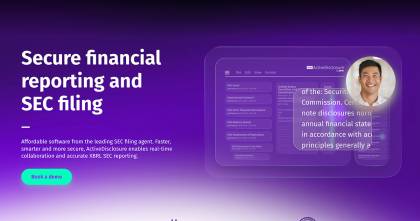Five Security Issues to Focus on in 2023
Is Your Data Safe? Don’t Be So Sure.
We see the headlines frequently—data breaches, customer information exposed, corporate data leaked. Whether it’s Dropbox, Twitter, or CashApp, no company or public organization wants to see their name in headlines announcing a security breach. As attacks become more sophisticated and more costly, executives must educate themselves on the current state of cyberattacks and plan accordingly to protect sensitive data.
In our latest Insider, I discuss the state of cyber threats, what companies need to know about the advanced technologies being used to hack into computing systems, and what DFIN does to stay ahead of cybercriminals.
Consider these five recommendations to protect your company’s valuable data.
1. Leverage best practices to thwart phishing scams
Phishing scams are one of the most common methods that hackers use to break into corporate computing systems. Think before you click. Validate sender details. Ensure your organization is using best-in-breed technology to scan email and collaboration platforms for malicious content, and utilize two-factor authentication or multi-factor authentication to reduce risk.
2. Prepare for ransomware threats
The costs to mitigate ransomware attacks continue to grow, particularly in the public sector, partly due to a lack of funds to continually monitor and update legacy systems. IT departments should continually examine the architecture company’s computing systems and regularly update employees about threats, how to recognize them (such as phishing schemes), and who to alert if there is a suspicious email or incident.
3. Protect against artificial intelligence-based attacks
We normally think about AI as a positive direction in technology growth, but hackers are now using AI as a weapon. Whether it’s robocalls to hook an unsuspecting employee or new forms of cyberattacks, IT leaders need to stay current on how AI can be used against them. Make sure that you have security controls in place to safeguard your company.
4. Examine your security practices with third parties
Focusing on enhanced security for your company is critical, but do you know what your partners are doing to protect their networks? Whether it's a cloud provider or a company that’s part of your supply chain, if they have security weaknesses, then you have security weaknesses. Set clear expectations with your partners and incorporate security technologies (e.g., ISO 27001, SOC I, and SOC II) to ensure that there’s no easy way for your network to be exploited.
5. Develop and sustain a workplace culture that’s aware of cyber risk
A workplace culture of security awareness should be an essential part of any organization's cybersecurity strategy. It can help create measurable and sustained behavior changes that transform your employees from targets to a strong frontline defense.
Arm your workforce with the insights needed to identity and report threats through timely, relevant training and simulations. Simulations are a great means to validate security awareness efforts as well as the efficiency of response plans.
Watch the two-part Security Insider Series, Strategies to Protect Your Company’s Data, for more information:



